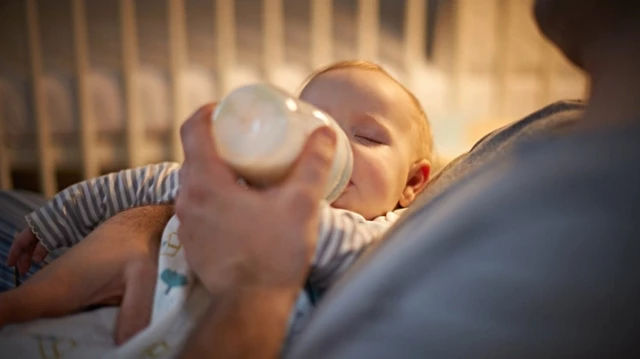If you are returning to work or will be away from your baby during breastfeeds, expressing your milk means you can continue to give them all the benefits of breastmilk when you’re not around. It also allows your partner or other family members to give you a hand in feeding your baby.
Expressing and storing breast milk

Some mums try to express without getting much milk, and then worry that their milk supply is low but because the sensations of pumping and hand expressing are not the same as baby sucking, especially at first mums may find it difficult.
Expressing methods
- Hand express
- Manual pump
- Electric pump/ Double pump
It is best to leave expressing until milk supply is established as giving bottles in the early days can lead to nipple confusion in the baby (4-6 weeks).
How often to express breast milk
- Wait until milk supply is established
- If unable to breastfeed a newborn baby because baby is premature or sick, then express 8-10 times daily starting at 10-15 minutes and increasing when the milk comes
- If feeding is established on the breast and mum wants to express, then its best to express in the mornings after the first feed as the breasts are usually fuller- evenings tend to yield less milk
Storing breast milk
Expressed milk stored in a closed container at room temperature is safe up to 8 hours
- Store breast milk in no more than 2-4oz volumes to reduce wastage.
- Wash hands to prevent any bacterial contamination
- Expressed milk stored in a closed container at room temperature is safe up to 8 hours
- Expressed milk can be stored in a fridge (back of the fridge not the door) for 3-5 days
- In a freezer for up to 3 months and a chest freezer for 6 months (check your own specific freezer guidelines)
- Always label with date and time to use in sequence. Once defrosted in a fridge you have up to 24 hours to use it
- Once defrosted use or throw away – breast milk cannot be refrigerated again, hence the importance of freezing in smaller amounts
- If you would like some more tips or advice on expressing and storing breast milk, please contact our Careline.
related articles
Learn more about breastfeeding

Get in touch with our Careline experts
Our nutritionists and feeding advisors are always on hand to talk about feeding your baby. So if you have a question, just get in touch






